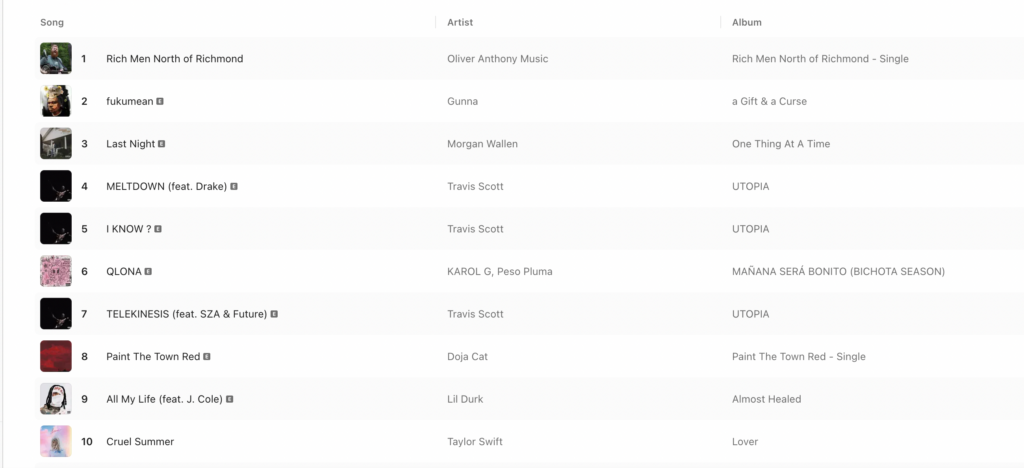The Judeo-Christian faith has long been formed by books and reading. From synagogue scrolls to circulating letters, believers have been nurtured, disciplined, and matured through ongoing conversations in the form of written words. We are people of The Book, and alongside it is an ever-growing shelf of more books.
I am a reader, in large part, because I am a believer. From the literature of the Second Temple period to the writings of Lewis, Chesterton, and Peterson, books have had an incalculable influence on my life and faith. Our house shows it. We converted our formal dining room into a reading room lined with bookcases. There’s a built-in bookcase in our entryway filled with books. My home study is lined with books. And much to my wife’s annoyance, there’s usually a pile beneath my side of the bed. I’m not even counting the two-credit-a-month audible subscription I’ve kept for nearly a decade.
We have a rule in my house—if my kids will read it—I’ll buy it. There’s no book budget. It’s always a yes to more books. (Thankfully our pace of reading has kept the budget in check.) For all the books we’ve purchased, my largest investment is not on my physical shelves. Since seminary, my largest book purchases have taken place through Logos Bible Software.
Logos Bible Software for Families and Pastors
My first copy of Logos came on a pack of CDs, and I just pulled up my order history to confirm that my first book purchased on Logos was in March 2010. I’ve been using Logos for almost 15 years, and I use it almost every day.
Over the years, I have developed a strategy for book buying. If I want to read a book straight through, usually in our reading room or lying in bed, I usually purchase a physical copy. If I may need to reference the book in the future, I buy it in Logos. My Logos library currently contains more than 2,700 books.
The key to understanding the value of Logos is recognizing it’s two things: a tool and a library. Of course, there is the benefit of having access to this library anywhere I take my phone or laptop, but these days, most books can easily be purchased in a digital format. The real value is that Logos offers a suite of tools to help you organize your study of the Bible and your growing Biblical library. It’s the tools and the books that make it powerful.
For pastors, I’ll go so far as to say that I think Logos is indispensable. In its early days, Logos seemed mostly designed for clergy and academics. But over the last decade, Logos has made impressive strides to make its software a tool for pastors and any individual or family serious about the Bible. Recently, I’m not the only one using Logos.
Each year, my son’s school hosts a history day. Each child is assigned a famous person from the past. My son was assigned the Apostle Peter (it’s a classical Christian school). One of the first things we did was open Logos’ factbook and search for facts about Peter. I was excited to give him not only an answer to his question but also to show him how anyone can study and learn more about scripture.
I think every believer and family needs to think about the resources they turn to and the value of the tools needed for serious study.


Why Now May Be the Perfect Time to Try Logos
While Logos’ set of tools is compelling and well-designed, the tools require you to have a library. Logos is designed to give you access to a set of books you’ve purchased or slowly acquired. That means every Logos user will eventually have a personalized library. In the past, getting started with Logos required making a sizable initial investment. You had to pay for the software and purchase a set of starter books to make the tool worth using. That wasn’t cheap. But that’s changing.
This year, Logos began rolling out a new subscription model. To be honest, I was surprised by how affordable their new plans are. At $9.99, $14.99, and $19.99, their full range of subscriptions is less than most of our other streaming services. To be clear, that subscription gives you access not only to the Logos tools but also to a starter library of books designed for each type of user. Its never been easier to get started.
For Families
I think every Christian home needs a Christian library. The questions and challenges inevitably raised by living in this cultural moment necessitate quality answers. The days of trusting Google search results are over. If you’re not finding ways to answer your children’s important questions, someone else will. Logos gives your whole family a curated place to investigate and dig deeper into God’s word. The investment you make Logos grows over time.
Logos’ base Premium plan is perfect for families, but I’d also consider subscribing to Pro to unlock some of the language tools that you can grow into using.
For Pastors
Carpenters keep quality tools, and mechanics better be able to find a full set of sockets. My wife’s a nurse; she invests every year in continuing education and keeping up her skills. A pastor’s library is central to being prepared in conversations and the pulpit. For $19.99, Logos’ Max subscription is a no-brainer.
I’d go further. I pastor a small church and am bi-vocational. Still, my church board approved a monthly book budget of $100/month. I use the money to buy Logos commentaries, resources, and courses. A book budget is a great way to show your congregation you are serious about ongoing study. Investing that budget in Logos will pay rewards far into the future.
Logos’ New AI Features
Talk of AI is unsettling for many people. I get it. I think AI will be a lot like the internet itself; it will be great and catastrophic. AI is going to have a profound impact on almost every industry. But, like the internet, it will also proliferate plenty of evil and confusion.
Like it or not, AI is already here. Even a simple Google search now provides AI-generated answers in the results. Those answers are written by AI, but they draw from real content. Often, the real source of those answers is hidden from the person searching. One of the immediate challenges of AI is the way it obscures sources. How are you supposed to know where those answers come from? How do you know you can trust the answer?
As Christians, we care deeply about the source and tradition of our theology. It matters too much to trust our answers to a Google algorithm.
I have been excited to see the careful way Logos is rolling out AI tools while addressing its challenges.
1. Logos AI (called Smart Search) is careful to cite its sources. Beyond summarizing answers, the AI allows you to discover resources and dig deeper into them. I’ve found this new AI-powered search to be a great way to uncover new resources and expose things I might not have looked for in my own library.
2. Logos has also limited its AI tool to the books in your library. That means you’re not getting theological answers dredged from biased online sources. You buy and prioritize books in your library, and Logos’ AI will help you find answers from those trusted sources. You get answers from sources you trust. You can check out an example in my video below.
Integrating Your Existing Print Library
What if you have already bought commentaries and books in print? To fully take advantage of those books in Logos, you would have to buy them again through Logos; however, Logos has built a tool that allows you to search your print library. You can load print books into Logos Bible Software, and searches will give you previews from your print books along with the page number for locating the relevant passages. The video below demonstrates how it works.
Special Deals
Logos is always running special promotions, including free books each month. Once you have Logos, you can easily find these free resources and special discounts on the Logos dashboard or the website. Plus, having a Logos subscription will save you 5% on all additional book purchases.
Logos has also created a special trial offer for Pastor Writer listeners. Right now, you can try out one of the new Logos subscriptions for 30 days at no cost. Download it for free and follow the tutorials below to see how I use Logos in my study every week.
I’m also happy to answer any questions about how Logos helps me study the Bible and pastor my congregation. Below, I’ve linked some video tutorials showing you how I use Logos.
Try Logos for 30 Days for Free
How I Use Logos Every Week
Below are a few video tutorials on how I have set up Logos to work for me. Every user is different, and one of Logos’ strengths is its customization. For me, three of the most important features are 1) Layouts 2) Collections 3) Language Tools. I’ll show you how I use each.
Building Custom Layouts for Study
Custom layouts allow you to organize your study and save those layouts to easily pick up where you left off. Layouts allow you to customize Logos to fit your study habits and favorite tools.
Organizing Your Books into Collections
Collections allow you to organize your books and focus your searches. Paired with Logos’ new AI Smart Search, collections allow you to really refine your searching.
Logos Language Tools
Logos gives you a remarkable set of tools for digging into the Greek and Hebrew of the Bible. I’ll show you how I use those language tools in my study.
Note: This post is not a paid promotion. I am a Logos ambassador and receive a small commission for those purchasing through the links. All articles and reviews are based on my genuine experience with the products described.









